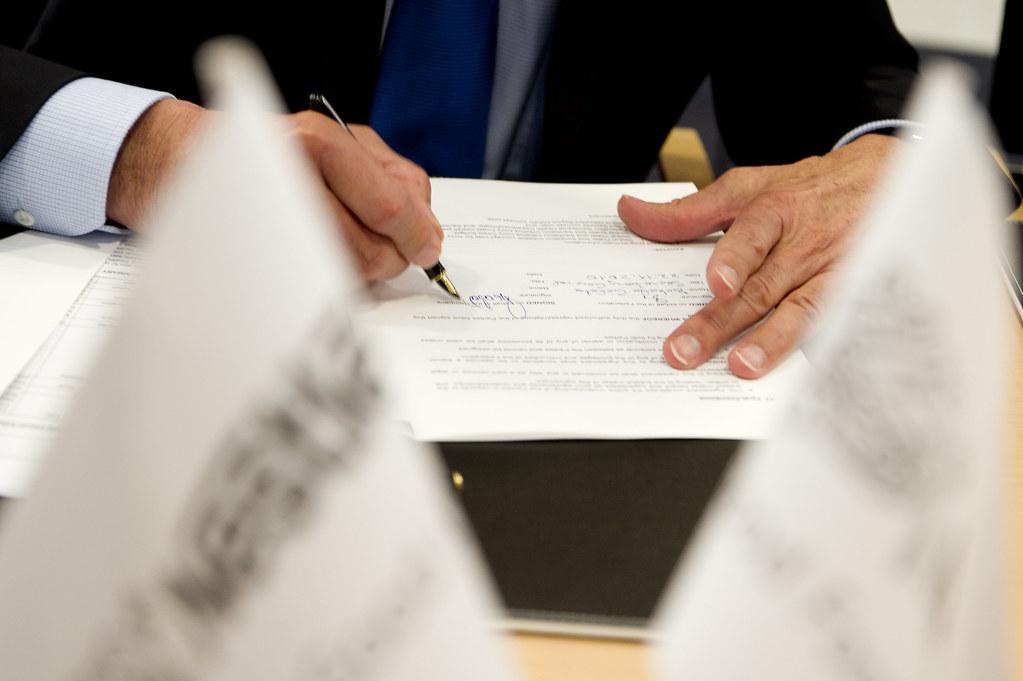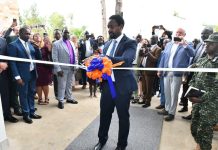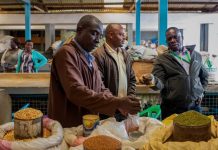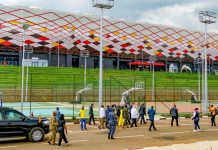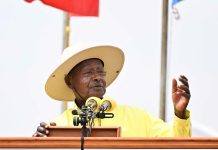Faridah N Kulumba
Africa-Press – Uganda. On 18th this month, the government of Uganda signed a petroleum production-sharing agreement with a unit of Australia’s company DGR Global (DGR.AX (http://dgr.ax/)) for the Turaco exploration area in the country’s Albertine rift.
DGR Global became the fourth company to obtain a licence to prospect the basin for more oil. DGR Energy and state-owned Uganda National Oil Company (UNOC) are the latest upstream entrants in the race to find more hydrocarbons, with Nigerian firm Oranto Petroleum, and ArmourEnergy – a subsidiary of DGR Global – having signed deals to venture onto the business in 2017.
This was confirmed by the Uganda’s Permanent Secretary in the Ministry of Enegy Irene Batebe during the side-line of the 10th East African Petroleum Conference and Exhibition (EAPCE) in Kampala who explained that the country is keen to find more oil to feed the planned refinery and for export.
Agreement approval
Turaco was one of the five blocks put up for auction in Uganda’s second licensing round launched in 2019. In January this year, Uganda’s cabinet agreed for the energy ministry to sign production-sharing agreements (PSA) for two oil exploration blocks with two oil firm, including a unit of Australia’s DGR Clobal. Energy Turaco Uganda Limited is owned by Australian DGR Clobal, for the Turaco exploration area.
The second agreement was Ugandan state-ownes UNOC, and covers the Kasurubana exploration area that stretches over 1,285 square kilometres, over which the company – a novice in upstream activity – is negotiating with Chinal National Offshore Oil Corporation to explore jointly, leveraging on the Chinese firm’s financial muscle.
DGR Energy Turaco Uganda Limited will explore in the Turaco block, a swathe of 637 square kilometre (246 square miles) in the Albertine Rift basin that straddles the African nation’s border with the Democratic Republic of Congo (DRC), for which the company will pay signature bonus, rental acreage and research and training fees.
The firm paid USD100,000 as signature bonus ans an annual acreage rental fee of USD25,700 that was deposited in the Petroleum Fund, including research and training fees totalling to USD30,000 – all mandatory before a licence is granted.
On 9th of this month, the DRC) said that the country begun dialogues with neighbouring country Uganda to have possible use of the East African country’s planned Crude Pipeline (EACOP) to export petroleum.
The 2007 Uganda’s Inter-Governmental Agreement (IGA), provides an entry for other countries to utilize the crude oil pipeline as third-party entities.
The signing of the IGA laid the foundation of other project agreements, shareholders’ agreements, and financing agreements, which are required to complement the EACOP Project. It is through these provisions that the DR Congo would jointly.
The significant milestone
The Uganda throught the Minister of Energy Hon. Ruth Nankabirwa said that this licence marks a significant milestone for the competitive second licensing round.
Implementation of the round had been delayed by the COVID-19 pandemic as travel curbs affected the bidding and negotiation stages, she added.
The government of Uganda is hopefull that the oil drilling project and the EACOP is the key to economic development. The authorities say oil wealth could help lift millions of people out of poverty hence increasing their standard of living. Some Ugandans see the international interference in the oil pipeline construction as an assault on the country’s sovereignty.
Uganda is developing a 60,000 barrels per day capacity refinery to serve the domestic and regional market, but local consumption of refined petroleum products stands at 45,000 barrels per day, and 200,000 barrels per day for the region.
This means that the country need more oil discoveries to meet the regional demand, which also requires that in future Uganda will have to upgrade the refinery’s capacity.
In January, Energy
Minister Ruth Nankabirwa indicated that her ministry targeted this year’s petroleum conference to invite investors to scramble for new exploration areas.
But amid the search for more hydrocarbons to feed the proposed refinery, Uganda has shelved plans to announce the third licensing round to “finalise consultations on five blocks for the next round.
According to one government official the internal assessment compelled the government to shelve the offers based on lukewarm interest from investors during the previous rounds.
The ministry wants to “first fix complex issues of blocks” like Ngaji – located in the sensitive ecosystem that hosts the mountain gorillas – alongside Omuka and Avivi exploration areas, which were in the previous licensing rounds but were not allocated takers and which are to be re-tabled in future bidding rounds.
In mid-September this year the European Parliament criticized a proposed East African pipeline, calling for TotalEnergies to consider an alternative route. European Parliament was reacting to the grave concern around alleged human rights violations in Uganda and Tanzania, linked to the Lake Albert project. The plan covers upstream investments in Tilenga and Kingfisher, with the construction of a 1400km East African Crude Oil Pipeline (EACOP) running to the Tanzanian port of Tanga.
For More News And Analysis About Uganda Follow Africa-Press

